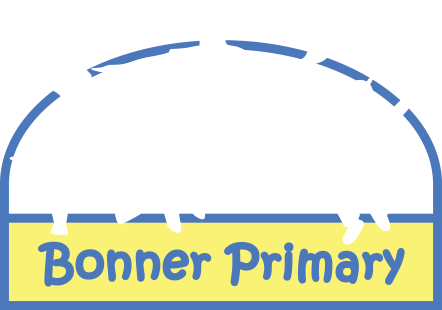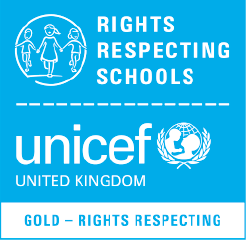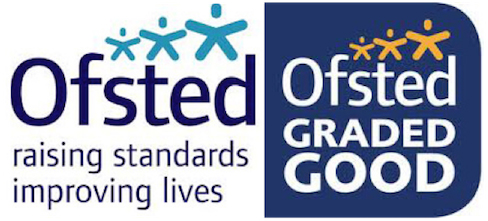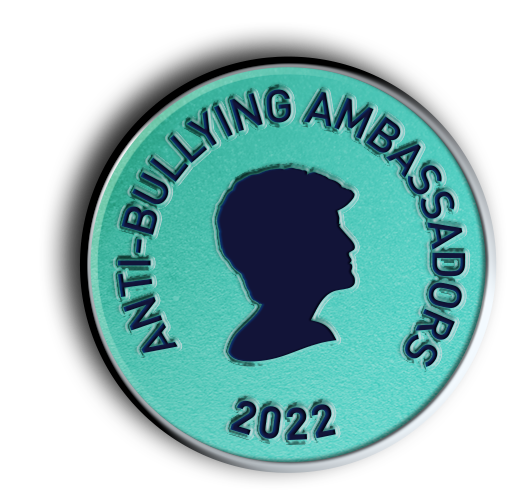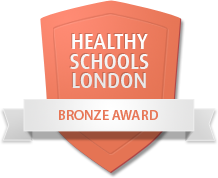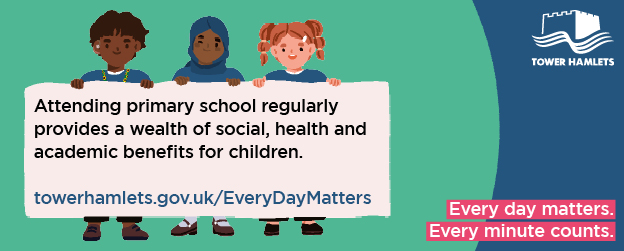Computing
Intent
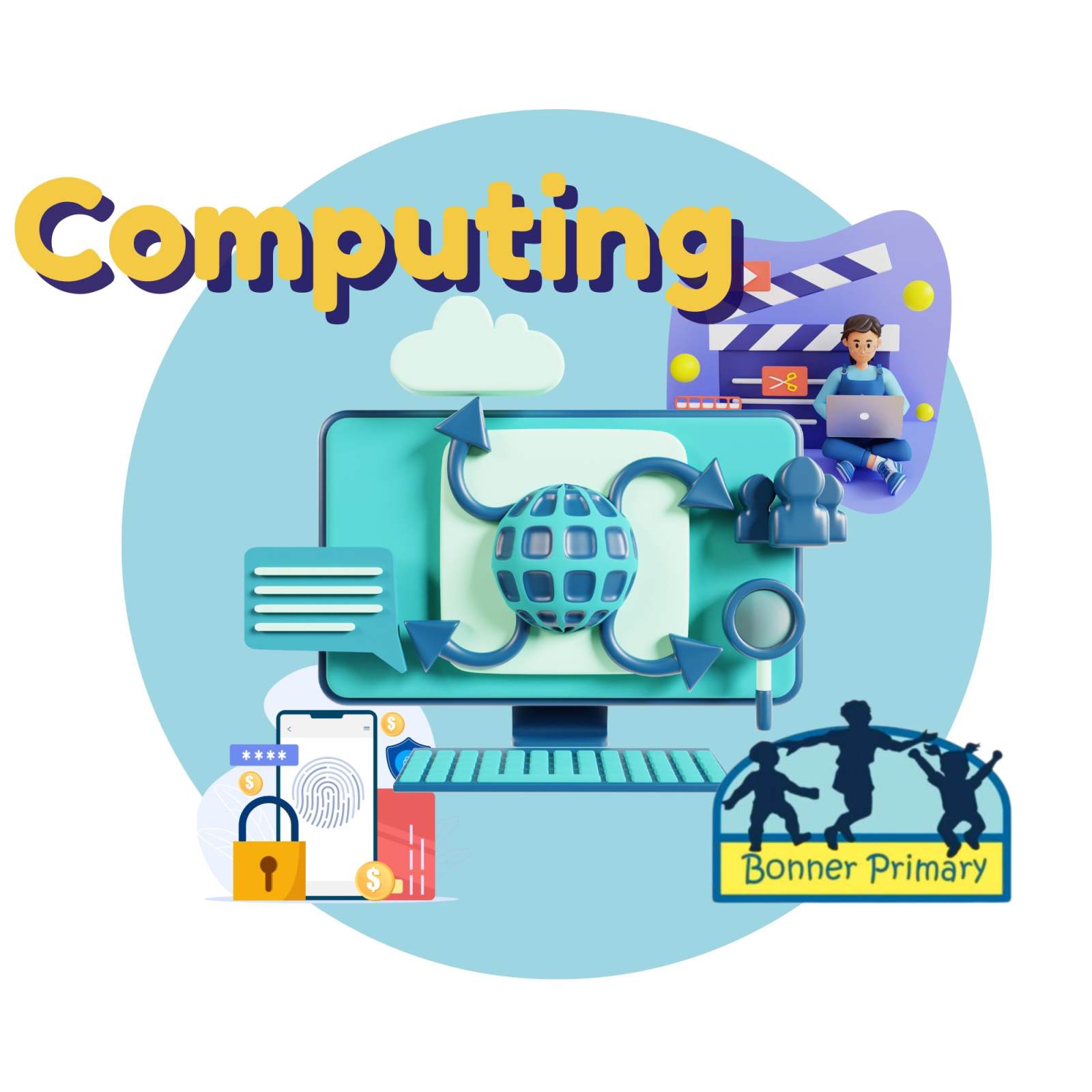 At Bonner Primary School, the Computing curriculum is designed to engage, stimulate, and enhance teaching and learning, ensuring that children develop confidence, respect, and a love of learning. Aligned with Article 17 of the UNCRC, the curriculum provides reliable information and encourages safe digital engagement. Computing is taught weekly and embedded across the curriculum, fostering computational thinking and creativity to help students understand and shape the world around them. The goal is for students to develop transferable life skills, preparing them for future workplaces and active participation in a digital world. The curriculum emphasises computer science, digital literacy, and the responsible use of information technology, with a strong focus on safety and respect.
At Bonner Primary School, the Computing curriculum is designed to engage, stimulate, and enhance teaching and learning, ensuring that children develop confidence, respect, and a love of learning. Aligned with Article 17 of the UNCRC, the curriculum provides reliable information and encourages safe digital engagement. Computing is taught weekly and embedded across the curriculum, fostering computational thinking and creativity to help students understand and shape the world around them. The goal is for students to develop transferable life skills, preparing them for future workplaces and active participation in a digital world. The curriculum emphasises computer science, digital literacy, and the responsible use of information technology, with a strong focus on safety and respect.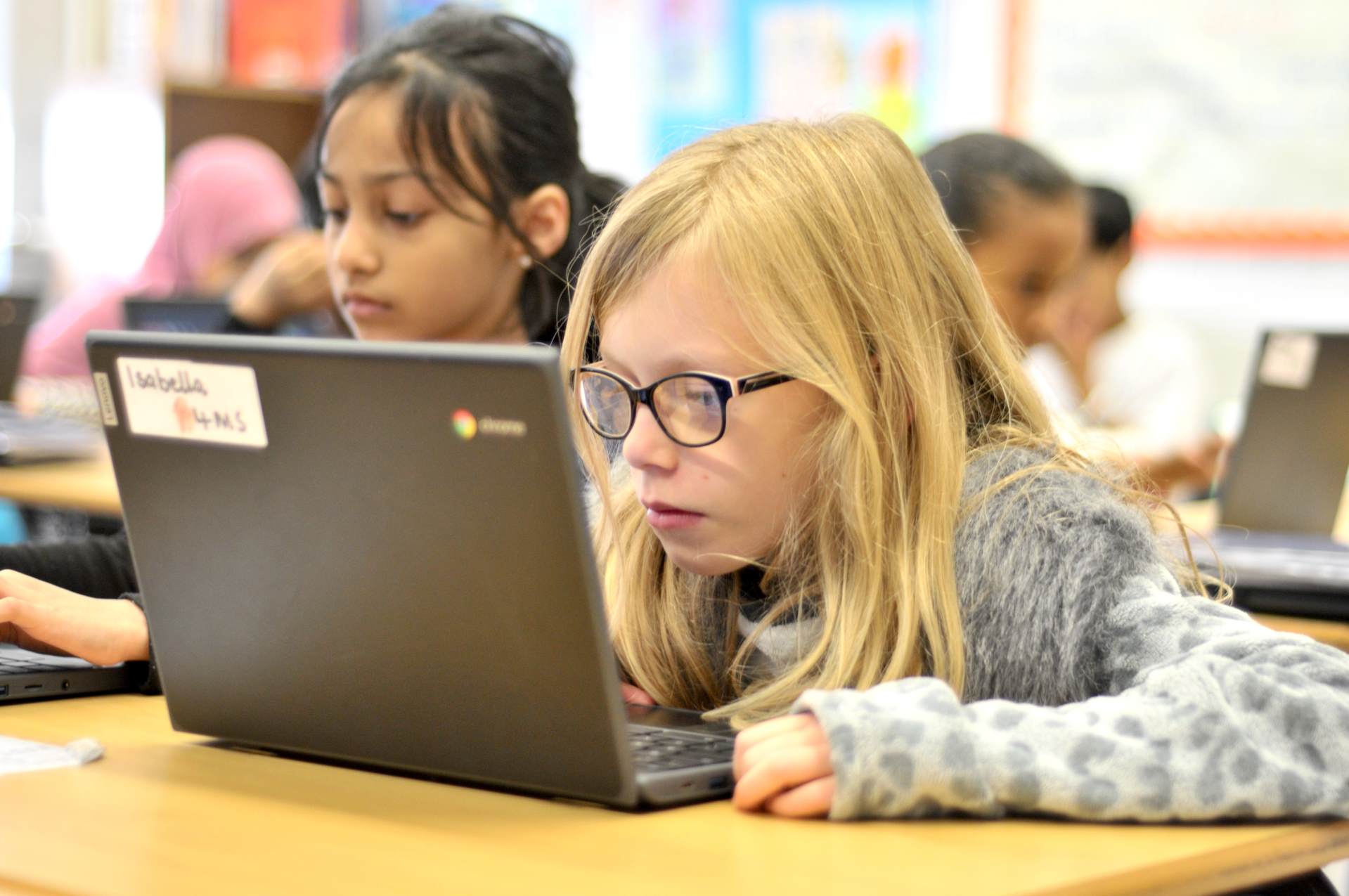
Implementation
Computing at Bonner follows the NCCE’s scheme of work, supported by resources from Barefoot and CAS, and incorporates a wide range of digital tools such as iPads, Chromebooks, BeeBots, and Lego. Teachers receive training through Google, Barefoot, and the NCCE, enabling them to confidently integrate technology into the classroom. Online safety is embedded within every topic, ensuring it remains a core part of the computing curriculum. It is also reinforced through PSHE lessons, with each year group exploring an additional topic via Project Evolve, further emphasising the importance of online safety at Bonner. This approach builds a strong culture of safe digital engagement.
The curriculum is mapped to ensure a progression of skills from EYFS through to KS2, with a focus on developing computational thinking, problem-solving, and programming skills. SEND students are supported through differentiated learning opportunities and assistive technologies. E-safety is further promoted through initiatives such as Digital Leaders, Safer Internet Day, and assemblies like Google’s Internet Legends. Code Club and STEM projects, in partnership with the Letslocalise platform, supplement the curriculum by offering enrichment opportunities.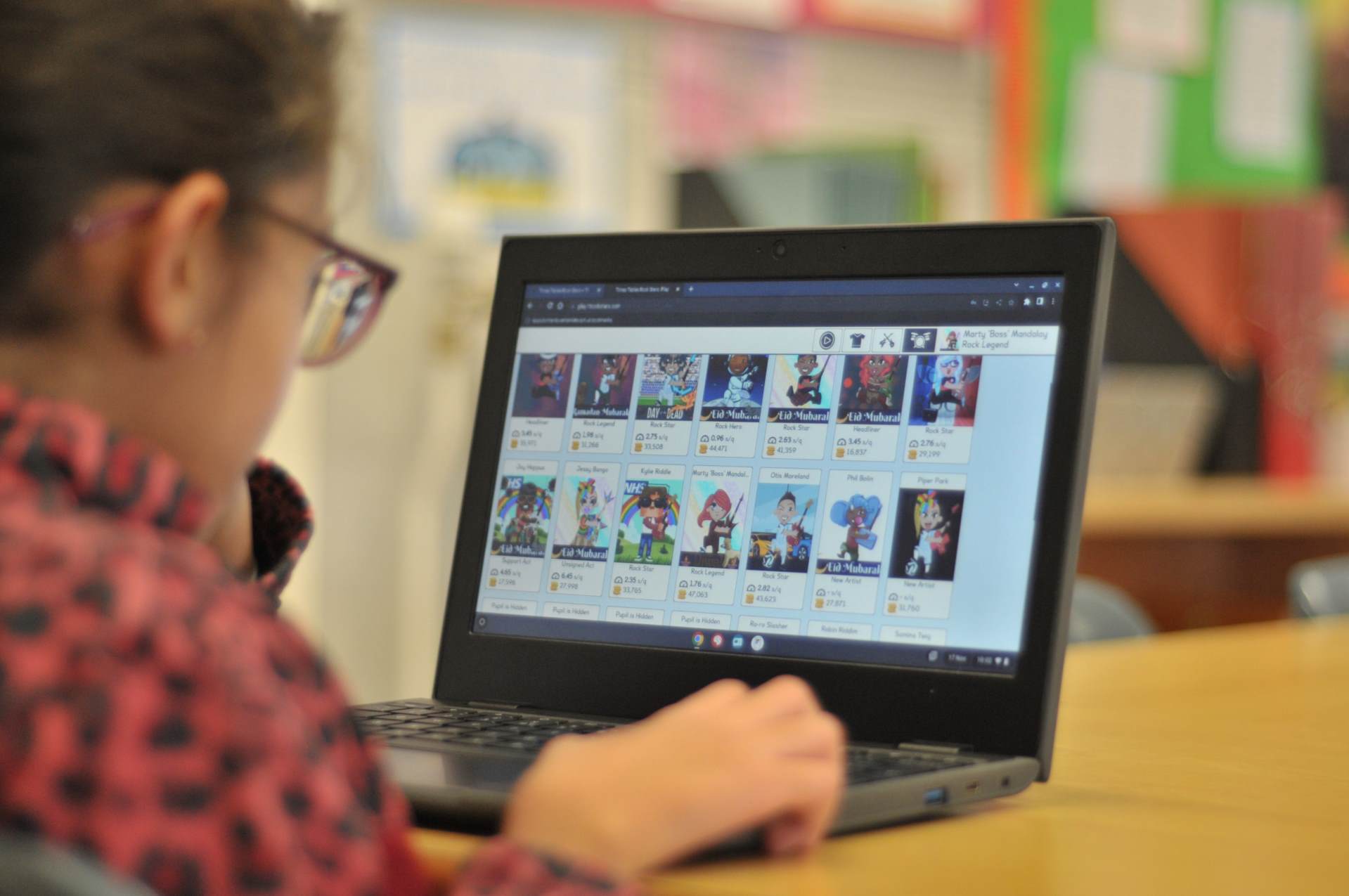
Impact
Bonner’s Computing curriculum equips students with the skills and knowledge needed to thrive in a digital future. Progress is tracked through assessments, class blogs, and reflection activities, with summative assessments shared with parents annually. The focus on e-safety ensures students develop responsible and safe technology habits. The Computing programme prepares students for KS3 and beyond by providing real-world applications of computing, while fostering collaboration, creativity, and digital literacy. Regular evaluations ensure the curriculum evolves alongside technological advancements, and clubs and community engagement further enrich students' computing experience.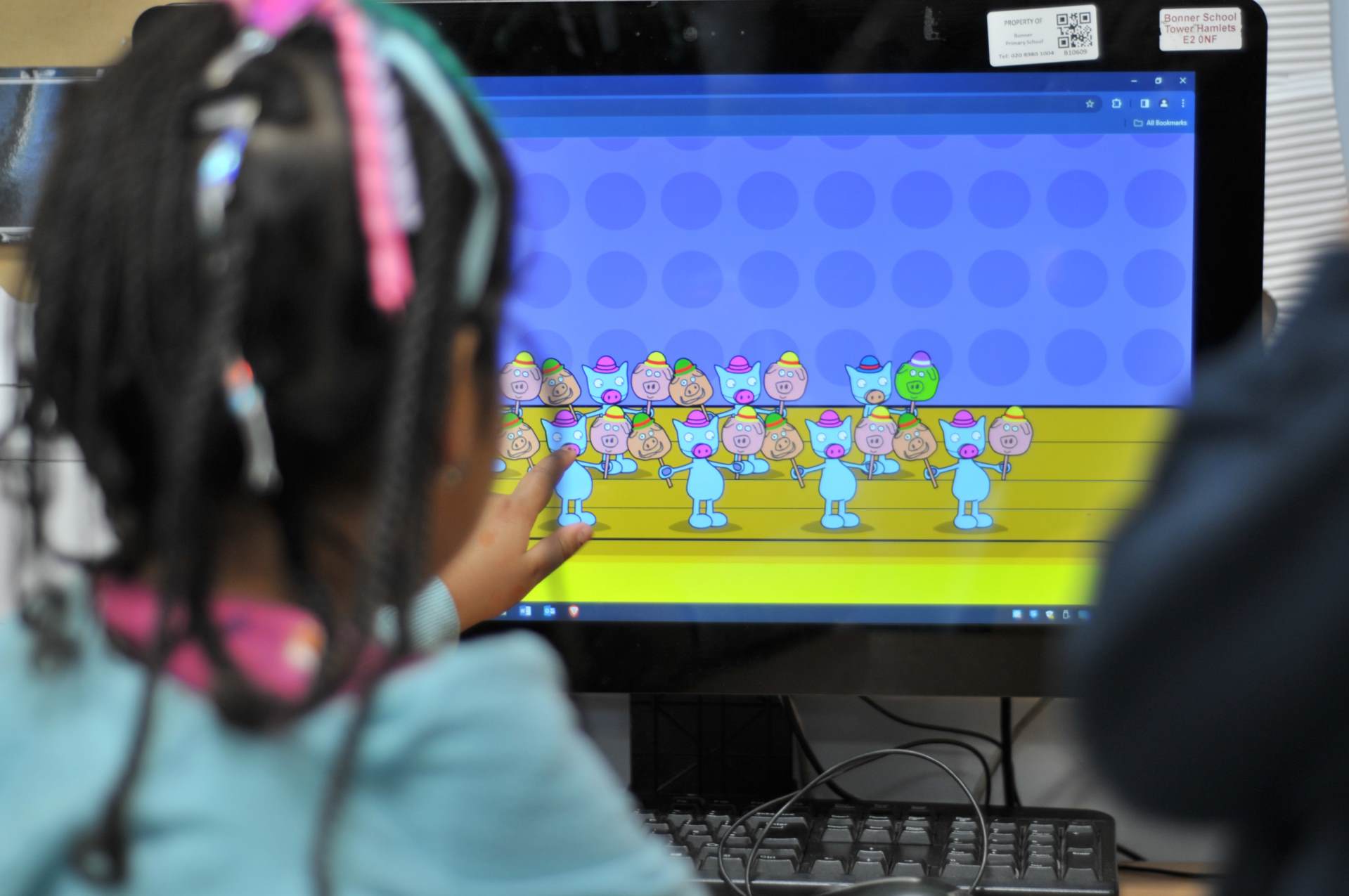
Progression of Skills
progression of skills computing.pdf
Online Safety
Computing and the use of technologies at Bonner Primary School is underpinned by e-safety being central to the curriculum. While showing children the benefits of using new technologies we are also rigorous in teaching them about how to use technology safely and responsibly.
In today’s world, it is more important than ever that children know how to keep themselves safe. We make e-safety a high priority and children are taught the basics of online safety in every year group, in regular special assemblies and through our Digital Leaders.
The Digital Leaders scheme is an innovative new internet safety programme from UK charity, Childnet International. Childnet is a UK-based charity set up to empower children, families and schools in the digital age, and its vision is to make the internet a great a safe place for children. The programme aims to empower young people to champion digital citizenship and digital creativity within their schools and to educate their peers, parents and teachers about staying safe online. 
By signing up to the programme our leaders join an exciting online community, where they access training and support from Childnet’s expert team, record achievements, and collaborate and share inspiration with schools across the UK. Once their training is
complete they become ‘digital leaders’, delivering impactful e-safety messages in school throughout the year through providing training, resources and activities. We believe that our leaders contribute and encourage others to make the internet safe for all. We also regularly look into Project Evolve for lesson ideas on E-Safety and follow UKCIS Education for a Connected World which are designed to equip children with the skills required for a digital life. 
However, there are only so many schools that can. It is incredibly important that parents take the time to talk to their children and set rules within their homes. We strongly suggest that you put a filter in place at home to prevent your children from accessing adult sites and that you monitor your child’s screen time and computer access. Talk to your child today! Our E-Safety Policy outlines further information about our School’s approach to E-Safety.
Links:
https://saferinternet.org.uk/safer-internet-day/safer-internet-day-2022
https://www.internetmatters.org/schools-esafety/primary/
https://beinternetlegends.withgoogle.com/en_uk
https://saferinternet.org.uk/guide-and-resource/parents-and-carers
https://www.childnet.com/resources/parent-and-carer-toolkit/
Resources
Our school is equipped with wireless hubs in each room and trolleys of laptops and tablets which the children use at their desks. Years 5 & 6 have 1-1 access to Chromebooks, whereas Years 3 & 4 have 1-2 access to Chromebooks. Years 1 & 2 have their own laptop trolleys, as well as access to the ICT suites. We have Chromebooks, iPads, microphones, recorders, Bee-Bot, Raspberry Pi, crumble, micro: bit, pi-top for Physical Computing, Ohbot-programmable robot heads, NXT EVO Mindstorms robots and a wide range of exciting software. Each classroom also has a SMART board and visualiser for use in most lessons. As technology changes at a fast pace, at Bonner, we evaluate and inform ourselves on our use of different resources and equipment and set targets.
Clubs and Educational Visits
Bonner Primary School supports the use of technology throughout the wider community and with the use of the school website and social media we share children’s work, latest information, developments, newsletters and policies with parents and carers. Opportunities are also planned for children to experience the necessities of technology in the wider community and in working environments. Our Computing Clubs help to engage and enthuse children-girls and boys to develop and extend their skills in programming. We currently run Digital Leaders Club, Code Club run by volunteers from Lloyds Banking Group and Ohbot Club. Our children also take part in pilot program research initiatives with Gender Balance Research, Discovery Education, Childnet and pitop.


